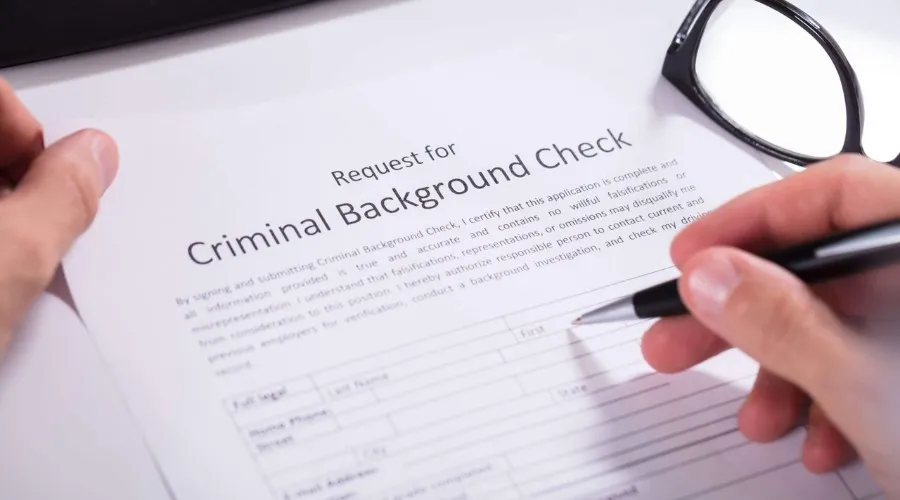Understanding Colorado tenant screening laws is essential for landlords. These rules help avoid legal risks and build trust with tenants. In 2025, new updates—like Portable Tenant Screening Reports and stricter fair housing protections—require property owners to stay informed. With resources from LeaseRunner, landlords can streamline screening while ensuring compliance and fairness for every applicant.
Understanding Tenant Screening Laws in Colorado
Colorado tenant screening laws operate under both federal and state-specific rules. They aim to protect tenants’ rights while giving landlords clear guidance on fair and legal practices.
The Fair Credit Reporting Act (FCRA)
The FCRA regulates how consumer reports—such as credit, criminal, and rental history—are used during applications. This law helps ensure fairness and transparency in tenant screening. For deeper insight, landlords can review the tenant screening report to understand how information is compiled and applied.
Department of Housing and Urban Development (HUD)
HUD enforces the Fair Housing Act, which bans housing discrimination based on race, religion, sex, disability, national origin, color, or family status. HUD also issues guidelines to make sure tenant background checks in Colorado don’t unfairly impact protected groups. Landlords should also explore HUD criminal background check requirements for compliance.
Fair Credit Reporting Act (FCRA)
Colorado tenant screening laws also operate under the FCRA. The Act plays a central role in regulating how landlords handle sensitive tenant information. It prevents tenants from unfair rejections based on inaccurate or outdated reports.
Portable Tenant Screening Report for Residential Leases (HB25-1236)
HB25-1236 requires landlords to accept Portable Tenant Screening Reports (PTSRs) from the applicants. It allows applicants to share those reports with multiple landlords. This streamlined process reduces time and costs for applicants.
2025 Updates to Colorado Tenant Screening Laws
Colorado has introduced important changes in HB25-1236. These updates reshape how landlords evaluate rental applicants. They aim to create more fair opportunities for applicants to rent a house.
Extension of Portable Tenant Screening Report’s Validity
Starting in 2025, the validity of Colorado PTSRs has been doubled from 30 to 60 days. Applicants can now submit the same report for multiple applications over a longer period. Landlords must accept any PTSR that is less than 60 days old, which improves efficiency for both sides of the rental process.

Non-Application of Credit Report for Housing Subsidy
Under updated laws, landlords may no longer rely solely on credit reports when reviewing applicants with housing subsidies. This shift ensures low-income renters are evaluated on rental history and income verification, aligning with Colorado’s rental standards. Instead, factors like rental history and income verification should be considered.
Acceptance of Housing Subsidy as Applicants’ Income Source
Another key amendment requires landlords to treat housing subsidies as a valid source of income during the qualification process. Landlords must confirm only that the combined subsidy and tenant income is equal to at least 200% of the monthly rent. This prevents unequal treatment of voucher holders, supports housing stability for families, and reinforces fair housing protections across Colorado.
Allowable Tenant Screening Criteria in Colorado
These rules specify what information landlords can request. They also explain how it must be disclosed and set limits to protect tenants from unfair practices.
Written Screening Policy Requirements for Landlords
Colorado law requires landlords to create and share a written tenant screening policy. This must outline credit reports, rental history, criminal records, eviction history, and income verification. Landlords can learn more about rental verification and checking eviction history to ensure accurate evaluations.
If an application is denied, landlords must provide a written notice within 20 days. Guidance on notice periods helps landlords stay compliant.
Criminal Background Checks
Landlords may run checks after a conditional offer, but must avoid using sealed or expunged records. To stay aligned with best practices, consider tenant background screening services that comply with both state and federal standards.
Arrests without convictions, sealed records, or pending cases that did not lead to a conviction cannot be used in screening. Written consent from the applicant is required, and landlords must follow fair housing regulations to avoid discriminatory impact.

Eviction Records
Colorado’s eviction sealing law reduces long-term barriers for tenants, aligning with state rental protections. Many cases are sealed 30 days after dismissal or three years after judgment.
Landlords and screening companies cannot access sealed cases, reducing long-term barriers for tenants. For unsealed cases, landlords may review eviction history up to seven years back, but accuracy must be verified before making a decision.
Income & Employment Verification
Proof of income can include pay stubs or employer letters, but income requirements are capped at 2x monthly rent. Housing subsidies must be accepted as valid income. Landlords can simplify this step with income verification and cash flow reports.
Restrictions on Criminal History Inquiries for Landlords
Colorado’s SB18-057 sets firm boundaries on how criminal history can be used in housing decisions. Landlords cannot ask about or deny applicants based on sealed, expunged, or non-conviction records. Denied applicants have the right to access any records used in the decision. Housing providers who ignore these protections risk violating fair housing laws.
These restrictions, in effect since 2019, reinforce Colorado’s commitment to fair access, limiting look-back periods and removing unjust barriers for renters.

How Much Landlords Can Charge Tenant Screening Fees
Application fees must reflect actual screening costs. For tips on setting rent fairly while considering costs, landlords can reference how much rent they should charge.
Application Screening Fee Limits
Under Colorado’s Rental Application Fairness Act (HB19-1106), landlords may charge application fees only to cover actual screening costs, such as credit, eviction, or background checks. There is no fixed dollar cap, but fees must directly reflect these expenses, and landlords must provide an itemized breakdown upon request.
When a tenant submits a PTSR, landlords cannot charge any additional application fee. Charging beyond these rules may lead to penalties of up to three times the collected fee, plus attorney’s fees.
Refund Rules
Colorado law makes clear that any portion of a screening fee not used must be refunded within 20 days of the decision or application date—whichever is later. For example, if a landlord collects $50 but only spends $30 on reports, the $20 difference must be returned.
If a tenant provides a PTSR, no fee can be charged at all, so refund issues are avoided entirely. If a landlord rejects an applicant, they must refund the fee before charging another applicant for the same unit. These refund rules promote fairness and transparency in the rental market.

Notice Requirements and Timelines
Under Colorado tenant screening laws, landlords must give applicants written notice of their screening criteria and any related fees. This ensures renters understand the process and potential costs upfront.
If an application is denied based on screening results, the landlord must issue a written adverse action notice within 20 days. The notice must state the denial reason, include used reports (e.g., credit or criminal), and inform the applicant of their FCRA rights.
With PTSRs, landlords must accept reports completed within the past 60 days. If they refuse, they must justify that decision in writing. Failure to follow these notice and timeline rules can expose landlords to fines, legal claims, or damages.
A Practical Guide to the Colorado Tenant Screening Process
Understanding tenant screening in Colorado is essential for landlords. Below is a step-by-step guide to help you stay compliant, protect your rental business, and treat applicants fairly.
Step 1: Collect Applications and Screening Fees
Start with complete rental applications that include personal details, rental history, and income verification. Under Colorado tenant screening laws (HB19-1106), landlords may only charge the actual cost of background or credit checks. Applicants must receive a written notice outlining both the fee amount and the screening criteria.
Applications should include rental history and income. If a PTSR is provided, landlords cannot charge fees. For applicants, knowing how to check my tenant screening report ensures transparency.
Step 2: Process Applications
After collecting applications, review them for completeness and verify income, employment, and references. Confirm that any screening fee matches actual expenses and that tenants received your written screening criteria upfront.
When a PTSR is provided, validate its authenticity and check that it’s within the 60-day validity window (as updated in 2025). Using digital tools can help landlords streamline verification while ensuring they follow Colorado’s transparency rules.
Step 3: Run a Colorado Tenant Screening Report
With consent, landlords can run credit, eviction, and criminal checks. Many use tenant screening services in Colorado to stay compliant with state law. Landlords must accept a valid PTSR if submitted, and in that case, no additional fee may be charged.
The PTSR—valid for 60 days—includes credit and rental history, reducing duplicate costs for tenants. Landlords can also use compliant online screening services to access reliable reports while meeting state requirements quickly.
Step 4: Evaluate & Decide
Use your written criteria to evaluate each applicant. Colorado tenant screening laws impose specific limits: landlords may not consider sealed eviction records (older than seven years) and must follow restrictions on criminal history under SB18-057.
Income verification must follow the state’s 200% rent-to-income cap, and HB25-1236 requires landlords to accept housing subsidies as lawful income. Always apply written criteria consistently. Applicants often ask what do landlords look for in a background check, and this transparency reduces disputes.
Step 5: Issue Written Approval or Adverse Action Notice
Finally, notify tenants in writing. For approvals, issue a clear acceptance notice with next steps, like lease signing. For denials, landlords must provide an adverse action notice within 20 days, explaining the reason and attaching copies of any reports used. Tenants must also be informed of their right to dispute inaccurate information.
If a fee was collected but not fully used, refund the unused portion within 20 days to avoid penalties under HB19-1106. This final step not only ensures legal compliance but also builds trust with tenants.
Tenant Rights During the Tenant Screening Process
Colorado law gives renters clear protections when landlords run background and credit checks. These privacy protections apply whether applicants use traditional applications or digital platforms governed by lease laws in Colorado.
Tenant Privacy Rights & Access to Screening Report
Colorado tenant screening laws, including the Fair Credit Reporting Act (FCRA) and the state’s Rental Application Fairness Act (HB19-1106), give renters strong privacy protections. A landlord must obtain written permission before pulling credit history, criminal background checks, or eviction records.
Tenants are entitled to receive a copy of any screening report used—this includes Portable Tenant Screening Reports (PTSRs) allowed under HB25-1236. These reports can be provided directly by the tenant, reducing application costs. Landlords are prohibited from misusing or sharing personal data, and tenants can request details on how their information was used. Just as importantly, landlords must disclose their screening criteria upfront, helping tenants understand the process and safeguarding their rights.

Dispute Against Inaccurate Information
Errors in background checks or credit reports can unfairly impact rental decisions. Under the FCRA, tenants may dispute errors with the reporting agency. When a landlord takes an adverse action, they must supply the tenant with the agency’s contact information so corrections can be requested.
Tenants may also submit supporting evidence to challenge the errors, and the agency must investigate within 30 days. In Colorado, sealed eviction records (2020 eviction sealing laws) and expunged criminal records (SB18-057) cannot legally be used against applicants. If these appear on a report, tenants have the right to dispute their inclusion.
Appealing a Landlord’s Adverse Action Notice
If a landlord denies an application, Colorado law requires them to send a written adverse action notice within 20 days. This notice must explain the reason for denial and include copies of any reports relied upon. Tenants who believe the decision was unfair or based on inaccurate data can:
- Contact the landlord to fix errors or add documents, such as income proof.
- Request corrections directly from the reporting agency.
- File a complaint with the Colorado Civil Rights Division if they suspect violations of fair housing laws.
- Pursue legal action if landlords violate FCRA or HB19-1106 obligations.
Best Practices for Colorado Landlords to Stay Compliant
Colorado landlords should use consistent screening to avoid legal risks. Below are essential steps every property owner should know under the Colorado tenant screening laws.
1. Develop a Written Tenant Screening Policy
Start by creating a transparent screening policy that lists all requirements. Policies may cover income (200% rent), rental history, credit, and 5-year checks. Share rules upfront and apply fairly to avoid Fair Housing Act discrimination risks.
Update for 2025: accept vouchers and subsidies as valid income under HB25-1236. A documented policy protects landlords in audits or legal disputes.
2. Get Consent and Protect Applicant Data
Always get written consent before pulling credit or background reports. Collect only necessary data and secure it with encryption and safe disposal. In 2025, avoid AI tools that risk bias in tenant screening or decision-making. Safeguarding applicant information builds trust and keeps you compliant with data privacy regulations.
3. Accept Portable Tenant Screening Reports (PTSRs)
Colorado law requires landlords to accept valid PTSRs within 60 days. These reports are free for applicants to reuse and must come from a certified agency. Accepting PTSRs streamlines applications, cuts costs, and keeps landlords compliant.
4. Run Background Checks Fairly and Consistently
Perform criminal background checks only after issuing a conditional offer. Focus on recent offenses, their severity, and signs of rehabilitation. Limit reviews to convictions within five years (except violent crimes) and exclude sealed or dismissed records. Following HUD guidelines and SB18-057 ensures fair housing compliance and reduces the risk of bias.
5. Provide Clear Adverse Action Notices
If you deny an application, you must issue both a pre-adverse and a final adverse action notice. Notices must include the report, applied criteria, and error-dispute steps. Starting in 2025, landlords cannot deny applicants with housing subsidies based on credit checks, so explain other factors clearly. This clarity protects landlords from FCRA violations and supports tenant rights.
6. Be Transparent With Screening Fees
Application fees must reflect actual costs and cannot be excessive. HB19-1106 requires providing an itemized breakdown on request and refunding any unused portion within 20 days. If an applicant submits a PTSR, you must waive the fee entirely. Being upfront about costs builds stronger tenant relationships. It also ensures compliance in Colorado’s tenant-friendly rental market.
7. Train Your Team and Stay Informed
Make training a regular part of your business. Staff should understand FCRA rules, Colorado screening laws, and fair housing updates like HB25-1236. Ongoing education on bias prevention and new technology risks is essential. By staying ahead of legal changes, landlords protect themselves and foster a fairer rental environment.
Conclusions
Staying compliant with Colorado tenant screening laws requires consistency, transparency, and fairness. By using resources such as tenant screening checklists and LeaseRunner’s tenant background screening tools, landlords can avoid costly mistakes while promoting equal housing access.
FAQs
1. What background checks can landlords run in Colorado?
Landlords may check income, rental history, and eviction records. They can also review criminal convictions within the past five years, with exceptions for serious violent crimes. Arrests or sealed records cannot be used against applicants.
2. What are the rent control laws in Colorado?
Colorado does not have statewide rent control. However, landlords must still comply with local housing ordinances and tenant protection laws. Rent increases must be reasonable and follow proper notice requirements.
3. Are landlords required to accept Portable Tenant Screening Reports (PTSRs)?
Yes. Under HB25-1236, landlords must accept valid PTSRs less than 60 days old. They also cannot charge tenants extra screening fees when a PTSR is provided.
4. Can landlords deny tenants based on housing vouchers or subsidies?
No. As of 2025, Colorado law treats subsidies such as Section 8 or housing vouchers as valid income sources. Denying applicants based on the source of income may violate fair housing protections.



